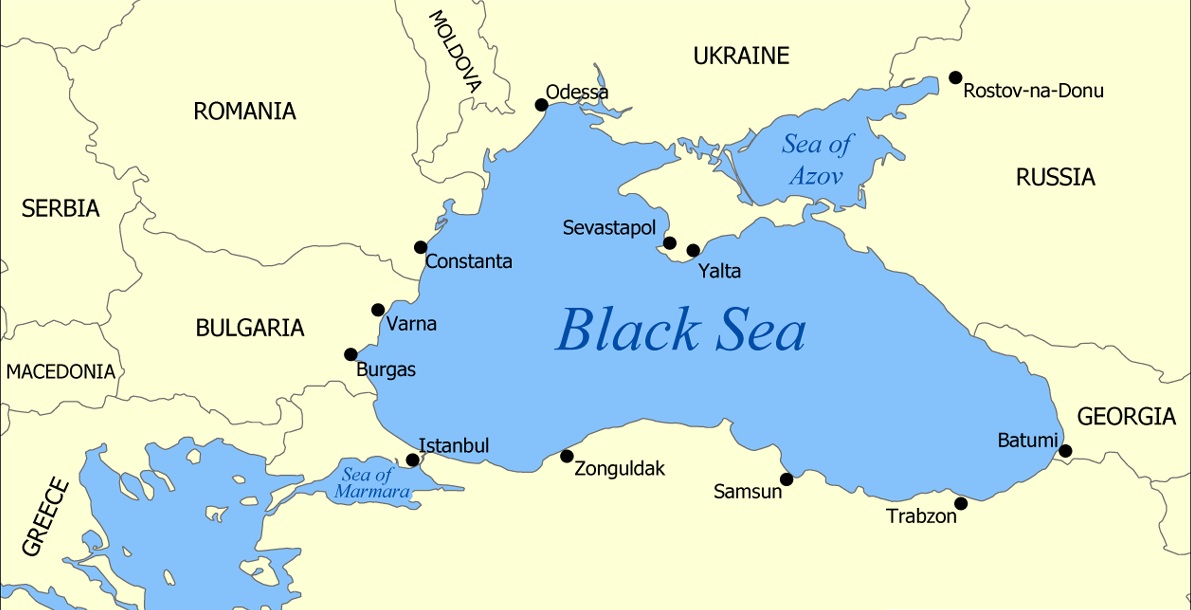
In our Center for Eurasian Studies (AVİM) analysis of last year concerning the developments in the Black Sea region titled “Black Sea, a Potential Friction Venue Between Russia and The West: Turkey Holds the Key to the Region” we stated that the Black Sea region forms the key intersection linking Russia, the Caucasus, the Middle East, and Central Asia and stressed that access to and from Black Sea is vital for all littoral states and their neighbors. We also pointed to the fact that Russia had endeavored to establish exclusive control of the Black Sea more than two centuries and waged numerous wars to control the Bosporus Straits and the Dardanelles.[1]
As it was mentioned in the said analysis, the game- changer event for NATO and the West in the Black Sea region is the annexation of Crimea by Russia and the following Ukraine-Russia conflict. This quite unfortunate development had paved the way for further unfortunate developments and nearly all legal and politically binding instruments and documents on arms control concluded in the early 1990s as a result of pain staking negotiations under the auspices of the Organization for Security and Co-operation in Europe (OSCE) came to be non-functional. Concordantly, the cooperative security order in Europe has received a serious blow. In this respect, as legally binding instruments we have to mention the Treaty on Conventional Armed Forces in Europe (CFE) which established limits on key categories of conventional military equipment in Europe (from the Atlantic to the Urals) and included unprecedented provisions for detailed information exchange and verification provisions like on-site inspections. The other legally binding instrument is the Open Skies Treaty which was designed to promote openness and transparency for military forces and activities. In addition to these legally binding instruments, the politically-binding Vienna Document was designed basically for transparency through the exchange and verification of information about armed forces and military activities.
In this context it is worth to mention and remember also a unique document agreed 16 years ago by the Black Sea coastal states on naval confidence and security building measures in the Black Sea.
According to the letter dated 10 May 2002 from the Permanent Representative of Ukraine addressed to the UN Secretary General the Republic of Bulgaria, Georgia, Romania, the Russian Federation, the Republic of Turkey and Ukraine adopted a Joint Declaration and the “Document on confidence- and security- building measures in the naval field in the Black Sea” in Kyev on 25 April 2002. The texts of the Joint Declaration and the Document were enclosed to the letter. It is mentioned in this correspondence that the said Document was elaborated during the negotiations which were held from 23 June 1998 through 1 November 2001.[2]
The Joint declaration states that promoting peace, security and stability in the Black Sea region is linked directly to European as well as the international security. It underlines the specific characteristics of the Black Sea and also stresses the regional character of the Document. Furthermore, it affirms that measures in the Document are not intended against the security interest of any State nor intended to effect in any way the freedom of navigation or naval activities of any State in the Black Sea.
The “Document on confidence- and security- building measures in the naval field in the Black Sea”, apart from Preamble and Other Provisions sections, includes the sections of:
- Co-operation in the naval field
- Contacts in the naval field
- Invitation to naval bases
- Exchange of naval information
- Confidence annual naval exercises
The zone of application where the measures included in the Document will be applicable is the territorial waters of the Participating States in the Black Sea and beyond these territorial waters, when relevant, the bases or auxiliary naval bases in the Black Sea.[3]
The Document in the preamble refers to the regime of Turkish Straits and confirms the full compliance with the principle of freedom of international navigation and the obligations of the Black Sea Coastal States under the Montreux Convention of 1936.[4]
In the preambular paragraphs the parties to the Document express their determination “… to strictly to abide in their relations by the purposes and principles of the United Nations Charter regarding, inter alia, the sovereignty, territorial integrity and inviolability of borders of States.”[5]
It should be mentioned that the “Document on confidence- and security- building measures in the naval field in the Black Sea” is a politically binding agreement.[6] The Document is considered to be the only international document agreed on comprehensive naval confidence and security measures at the regional level.
Quick search on internet indicates that this unique document is still in force. The same search also puts forward the Russian Federation’s (RF) view on the Document. In the web site of the Ministry of Foreign Affairs of the RF there exists a statement made on 26 April 2002 under the title of “Document On Trust-Building Measures in The Black Sea Adopted” which states, among others, the following:
“By virtue of its geographic location the Black Sea has always been part of Russia's sphere of special interests. Note should be made of its close links to European security. Today it is a sea of peace and intensive trade and economic cooperation. The document adopted in Kyiv, which began to be worked out on Ukraine's initiative way back in 1994 and which was from the start energetically supported by Russia, is opening up fresh horizons and creating a comprehensive set of tools for increasing the transparency and collaboration of the region's navies in the interests of stronger peace and the development of mutually beneficial cooperation.
The Russian side attaches much importance to the adoption of the multilateral document and declares its commitment to its consistent and painstaking observance. It is our conviction that, acting in the spirit of goodwill and stronger good neighborly relations, the other participating nations, will adopt a similar approach.”[7]
In the internet search we also run across the Statement by the Delegation of Ukraine at the OSCE Forum for Security Cooperation (FSC) concerning the Thirteenth Annual Consultations on the Review of Implementation of the Document on CSBMs in the naval field in the Black Sea on 16 December 2015. Relevant parts of the statement is as follows:
“By adopting the Document in Kyiv on 25 April 2002, all six Black Sea Coastal States reaffirmed their determination to strictly abide in their relations by the purposes and principles of the United Nations Charter regarding, inter alia, the sovereignty, territorial integrity and inviolability of State borders. According to paragraph 11 of its preamble, the Document is politically binding, and can be further enriched with measures aimed at contributing to enhancing regional security and stability and fostering good neighborhood relations and co-operation. We deem as particularly important the presence in the Document of reiteration by all participating States of their commitment to fully implement the Document in good faith thus contributing to mutual confidence and cooperation in order to strengthen security and stability in the Black Sea region.
Illegal occupation and annexation by the Russian Federation of Ukraine’s Autonomous Republic of Crimea and the city of Sevastopol constitute a flagrant violation of the basic norms and principles of international law, as well as of the provisions of the Document on Confidence and Security-Building Measures in the Naval Field in the Black Sea.”[8]
We understand from the OSCE documents that 14th annual consultations on the review of the implementation of the said Document took place on 17 November 2016 in Vienna under the chairmanship of the Russian Federation. Ukraine repeated her above-mentioned position also on the occasion of this meeting. The relevant paragraph of the Ukrainian statement is as follows:
“Unfortunately, we have to note once again that the consultations with the participation and under the chairmanship of the Russian Federation turned out to be unproductive and even senseless. The Russian side refuses to recognize the obvious. The illegal occupation and attempted annexation by the Russian Federation of the Autonomous Republic of Crimea and the city of Sevastopol, which, according to international norms and principles as well as common international understanding, remain an integral part of Ukraine, constitute a flagrant violation of the basic norms and principles of international law, as well as of the provisions of the Document on Confidence- and Security-Building Measures in the Naval Field in the Black Sea… Regrettably, we have to acknowledge that the co-operation and confidence-building mechanisms in the naval field in the Black Sea provided for in the Document on Naval CSBMs have demonstrated the ineffectiveness of the Document and have not helped to prevent or resolve the grave developments in the region… For its part, Ukraine will continue to implement the provisions of the Document on Naval CSBMs, taking the aggression of the Russian Federation into consideration, and within its capabilities and resources.”[9]
Russian Federation (RF) statement in the same meeting underlines that “Although the security situation in the Black Sea region remains fragile and complex and, consequently, the Document is not implemented in its full capacity, the Participating States continue to believe in its value, relevance and contribution to regional security and stability and they will continue to act in that regard.” RF also stresses in the statement that “Pursuant to the provisions of the Document, Turkey will assume the next Chairmanship in 2017.”[10]
As it was mentioned in both RF and Ukrainian statements, the ”Document on confidence- and security- building measures in the naval field in the Black Sea” is in force.
Taking into account the provisions of this Document, it is possible to state objectively that Ukrainian statements concerning the implementation of the Document reflect the reality. As far as the said Document is concerned, Russian Federation is technically not in compliance with the certain key provisions of the” Document on confidence- and security- building measures in the naval field in the Black Sea”.
In the above-mentioned RF Ministry of Foreign Affairs statement of 26 April 2002 it was underlined that “the Russian side attaches much importance to the adoption of the multilateral document and declares its commitment to its consistent and painstaking observance. It is our conviction that, acting in the spirit of goodwill and stronger good neighborly relations, the other participating nations, will adopt a similar approach.” As it was referred to in this statement, in fact, “other participating nations” should also expect from the Russian Federation “consistent and painstaking observance” of the provisions of the Document.
In the light of the above, it should be underlined that Black Sea region is in need of confidence and security measures more than ever. The region needs cooperation not confrontation. For faithful cooperation in the framework of internationally agreed documents, there is a need to observe the golden rule of pacta sund servanda. As mentioned in the RF statement of 26 April 2002, we should all act in spirit of goodwill and strive for good neighborly relations. We should not forget that playing zero sum game does not bring anything than insecurity and instability.
[1] Teoman Ertuğrul Tulun, “Black Sea, A Potential Friction Venue Between Russia And The West: Turkey Holds The Key To The Region.” (Center for Euraisan Studies (AVİM), March 13, 2017), 10.31219/osf.io/sjcx3 , https://avim.org.tr/en/Analiz/BLACK-SEA-A-POTENTIAL-FRICTION-VENUE-BETWEEN-RUSSIA-AND-THE-WEST-TURKEY-HOLDS-THE-KEY-TO-THE-REGION.
[2] Valery Kuchinsky, “Letter Dated 10 May 2002 from the Permanent Representative of Ukraine to The United Nations Addressed to the Secretary General,” Letter, June 3, 2002, A/57/82, http://undocs.org/en/A/57/82.
[3] Kuchinsky, para. 32.
[4] Kuchinsky, para. 7.
[5] Kuchinsky, para. 4.
[6] Kuchinsky, para. 11.
[7] “Document On Trust-Building Measures In The Black Sea Adopted” (The Ministry of Foreign Affairs of the Russian Federation, April 26, 2002), 852-25-04-2002, http://www.mid.ru/en/web/guest/foreign_policy/rso/-/asset_publisher/0vP3hQoCPRg5/content/id/558526.
[8] “Statement by the Delegation of Ukraine at the 807- Th FSC Plenary Meeting on the Results of the T Hirteen Th Annual Consultations on the Review of Implementation of the Document on CSBMs in the Naval Field in the Black Sea” (Organization for Security and Co-operation in Europe, n.d.), FSC.DEL/235/15, https://www.osce.org/fsc/212776?download=true.
[9] “837th PLENARY MEETING OF THE FORUM” (Organization for Security and Co-operation in Europe, November 30, 2016), FSCEJ843 FSC.JOUR/ 843, https://www.osce.org/fsc/286176?download=true.
[10] “837th PLENARY MEETING OF THE FORUM,” 2.
© 2009-2024 Center for Eurasian Studies (AVİM) All Rights Reserved
No comments yet.
-
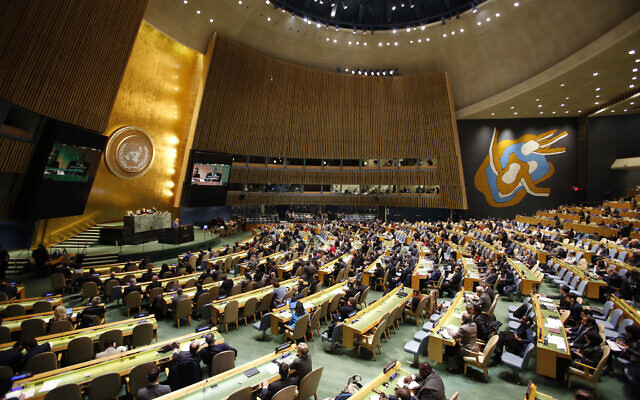 THE UN GENERAL ASSEMBLY REJECTED AND CONDEMNED HOLOCAUST DENIAL AND RECALLED THE INTERNATIONAL LEGAL BASIS OF ITS REJECTION
THE UN GENERAL ASSEMBLY REJECTED AND CONDEMNED HOLOCAUST DENIAL AND RECALLED THE INTERNATIONAL LEGAL BASIS OF ITS REJECTION
Teoman Ertuğrul TULUN 04.02.2022 -
 EP TURKEY RAPPORTEUR PIRI CONFIRMS WHAT HAD ALWAYS BEEN SUSPECTED: “EVEN IF TURKEY WERE A PERFECT DEMOCRACY, MERKEL AND […] SARKOZY WOULD NOT WANT TURKEY IN THE EU”
EP TURKEY RAPPORTEUR PIRI CONFIRMS WHAT HAD ALWAYS BEEN SUSPECTED: “EVEN IF TURKEY WERE A PERFECT DEMOCRACY, MERKEL AND […] SARKOZY WOULD NOT WANT TURKEY IN THE EU”
Teoman Ertuğrul TULUN 04.04.2019 -
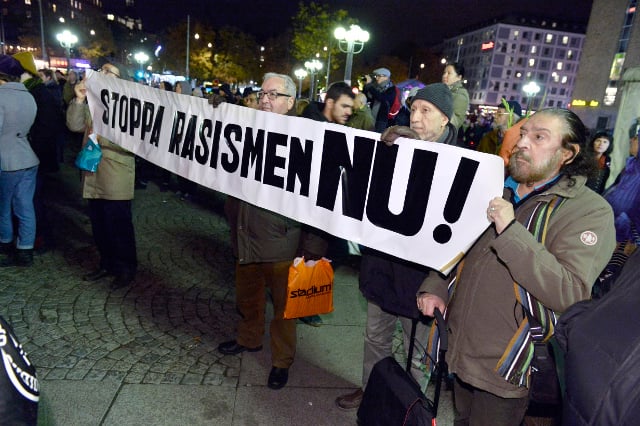 INVOLUNTARY XENOPHOBIC REFLEX SHOWS ENTRENCHED XENOPHOBIA IN WESTERN EUROPEAN ACADEMIA: THE SWEDISH CASE
INVOLUNTARY XENOPHOBIC REFLEX SHOWS ENTRENCHED XENOPHOBIA IN WESTERN EUROPEAN ACADEMIA: THE SWEDISH CASE
Teoman Ertuğrul TULUN 10.02.2023 -
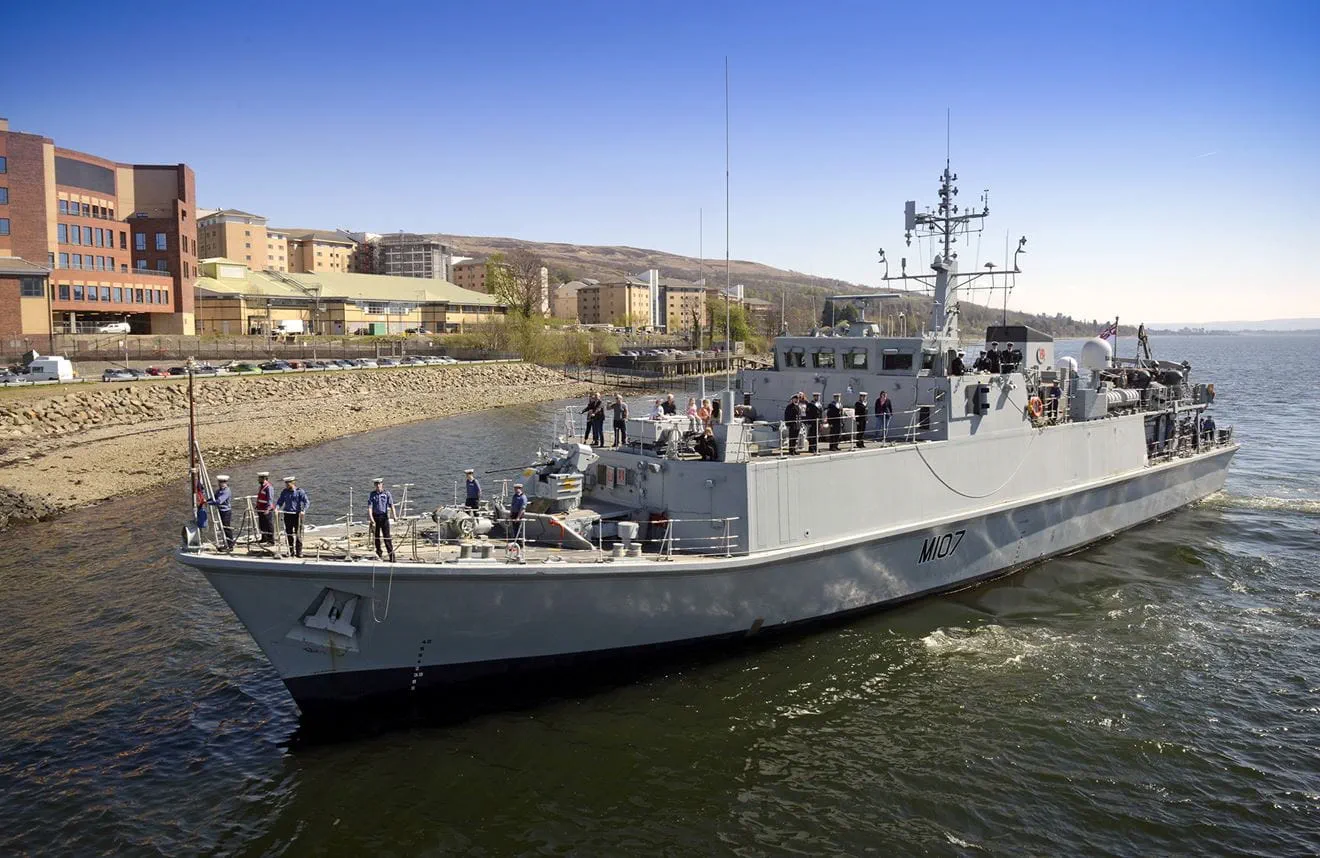 CAREFUL MANAGEMENT OF THE IMPLEMENTATION OF THE 1936 MONTREUX CONVENTION IN A DIFFICULT AND CHANGING GEOPOLITICAL ENVIRONMENT OF THE BLACK SEA
CAREFUL MANAGEMENT OF THE IMPLEMENTATION OF THE 1936 MONTREUX CONVENTION IN A DIFFICULT AND CHANGING GEOPOLITICAL ENVIRONMENT OF THE BLACK SEA
Teoman Ertuğrul TULUN 18.01.2024 -
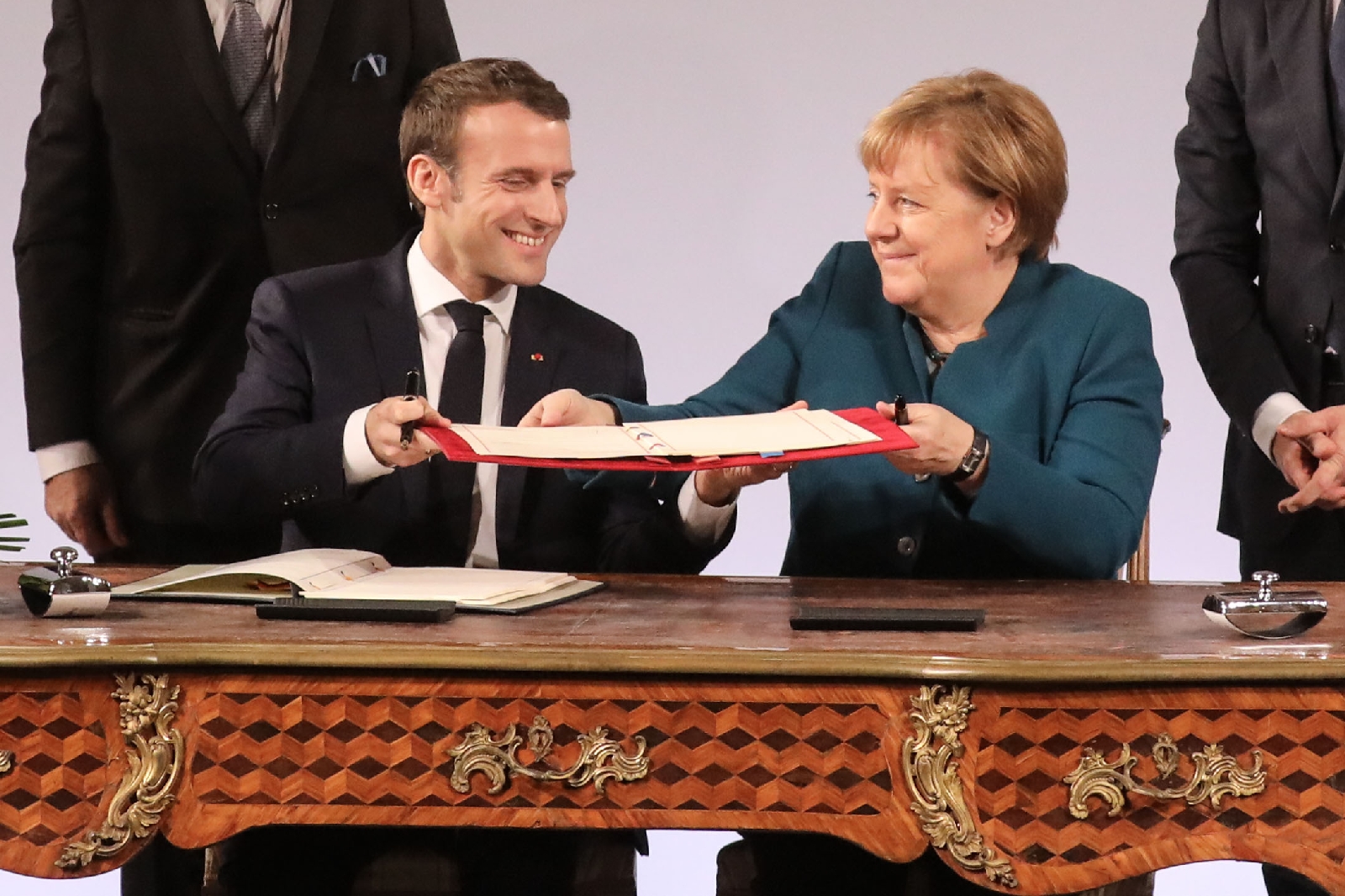 GERMAN-FRENCH JOINT CULTURAL INSTITUTES: TRANSFORMATION OF THE “CIVILIZING” MISSION OF WEST EUROPEAN COLONIALISM
GERMAN-FRENCH JOINT CULTURAL INSTITUTES: TRANSFORMATION OF THE “CIVILIZING” MISSION OF WEST EUROPEAN COLONIALISM
Teoman Ertuğrul TULUN 26.02.2019
-
 THE KARABAKH CONFLICT AND THE LAWFARE OF ARMENIA: ARMENIA’S CAMPAIGN FOR REMEDIAL SECESSION (I)
THE KARABAKH CONFLICT AND THE LAWFARE OF ARMENIA: ARMENIA’S CAMPAIGN FOR REMEDIAL SECESSION (I)
Turgut Kerem TUNCEL 27.10.2020 -
 CHAPTER BY CHAPTER SYNOPSIS AND REVIEW OF TURKS AND ARMENIANS: NATIONALISM AND CONFLICT IN THE OTTOMAN EMPIRE BY JUSTIN MCCARTHY - 6
CHAPTER BY CHAPTER SYNOPSIS AND REVIEW OF TURKS AND ARMENIANS: NATIONALISM AND CONFLICT IN THE OTTOMAN EMPIRE BY JUSTIN MCCARTHY - 6
AVİM 22.10.2015 -
 BOOK REVIEW: LEGISLATING REALITY AND POLITICIZING HISTORY
BOOK REVIEW: LEGISLATING REALITY AND POLITICIZING HISTORY
Sean Patrick SMYTH 16.05.2017 -
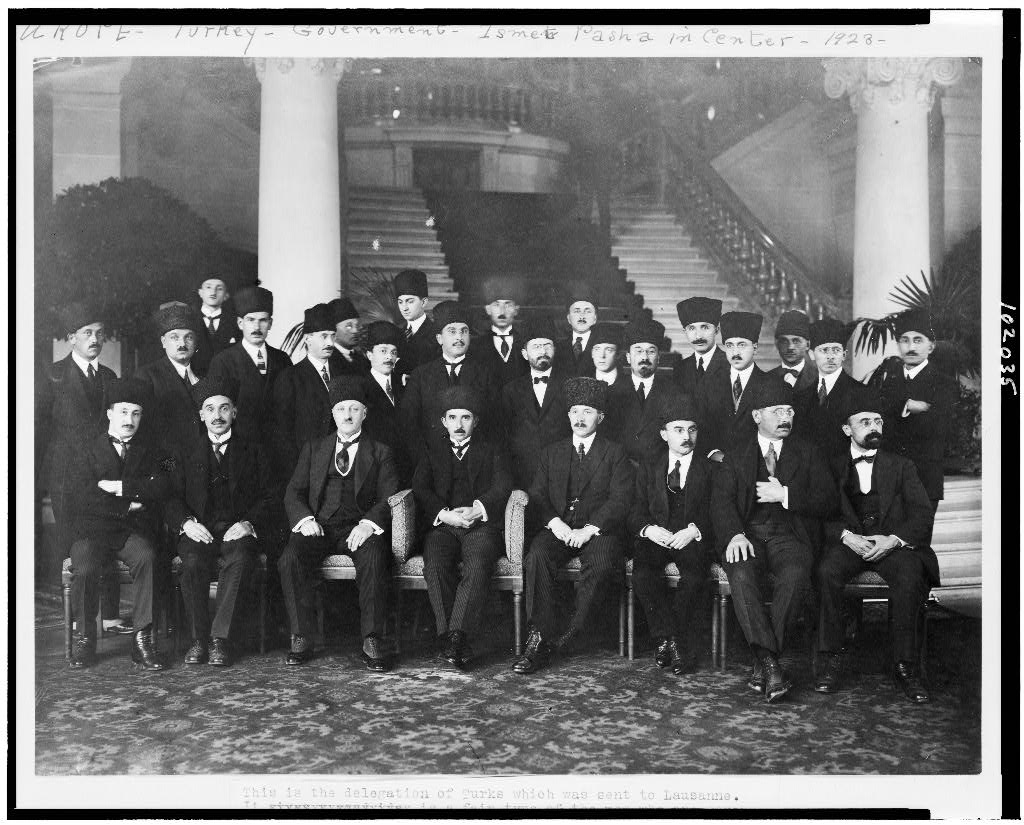 PEACE TREATY OF LAUSANNE AND THE END TO ARMENIAN ASPIRATIONS
PEACE TREATY OF LAUSANNE AND THE END TO ARMENIAN ASPIRATIONS
Teoman Ertuğrul TULUN 22.07.2016 -
 EROSION IN ARMS CONTROL REGIMES CONTINUES
EROSION IN ARMS CONTROL REGIMES CONTINUES
Teoman Ertuğrul TULUN 12.10.2023
-
19.04.2024
Türk-Ermeni İlişkileri Üzerine Ömer Engin Lütem Konferansları 2023 -
11.04.2023
Türk-Ermeni İlişkileri Üzerine Ömer Engin Lütem Konferansları 2022 -
27.03.2023
RADİKAL ERMENİ UNSURLARCA GERÇEKLEŞTİRİLEN MEZALİMLER VE VANDALİZM -
17.03.2023
PATRIOTISM PERVERTED -
23.02.2023
MEN ARE LIKE THAT -
03.02.2023
BAKÜ-TİFLİS-CEYHAN BORU HATTININ YAŞANAN TARİHİ -
16.12.2022
INTERNATIONAL SCHOLARS ON THE EVENTS OF 1915 -
07.12.2022
FAKE PHOTOS AND THE ARMENIAN PROPAGANDA -
07.12.2022
ERMENİ PROPAGANDASI VE SAHTE RESİMLER -
30.03.2022
Türk-Ermeni İlişkileri Üzerine Ömer Engin Lütem Konferansları 2021 -
01.01.2022
A Letter From Japan - Strategically Mum: The Silence of the Armenians -
01.01.2022
Japonya'dan Bir Mektup - Stratejik Suskunluk: Ermenilerin Sessizliği -
11.02.2021
Türk-Ermeni Uyuşmazlığı Üzerine Ömer Engin Lütem Konferansları 2020 -
03.06.2020
Anastas Mikoyan: Confessions of an Armenian Bolshevik -
08.04.2020
Sovyet Sonrası Ukrayna’da Devlet, Toplum ve Siyaset - Değişen Dinamikler, Dönüşen Kimlikler -
18.03.2020
Türk-Ermeni Uyuşmazlığı Üzerine Ömer Engin Lütem Konferansları 2019 -
08.03.2019
Türk-Ermeni Uyuşmazlığı Üzerine Ömer Engin Lütem Konferansları 2018 -
12.06.2018
Ermeni Sorunuyla İlgili İngiliz Belgeleri (1912-1923) - British Documents on Armenian Question (1912-1923) -
02.12.2016
Turkish-Russian Academics: A Historical Study on the Caucasus -
01.07.2016
Gürcistan'daki Müslüman Topluluklar: Azınlık Hakları, Kimlik, Siyaset -
10.03.2016
Armenian Diaspora: Diaspora, State and the Imagination of the Republic of Armenia -
24.01.2016
Ermeni Sorunu Temel Bilgi ve Belgeler (2. Baskı)
-
AVİM Conference Hall 24.01.2023
CONFERENCE TITLED “HUNGARY’S PERSPECTIVES ON THE TURKIC WORLD"









